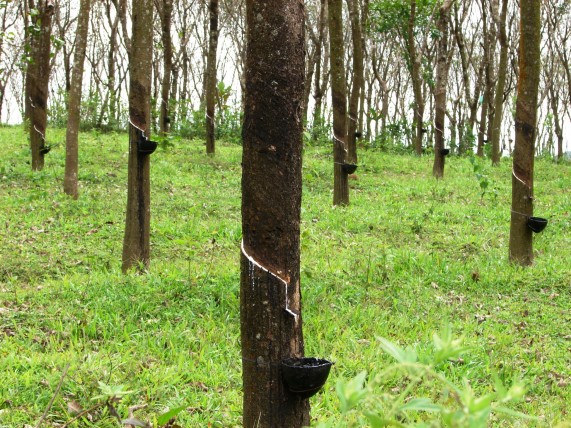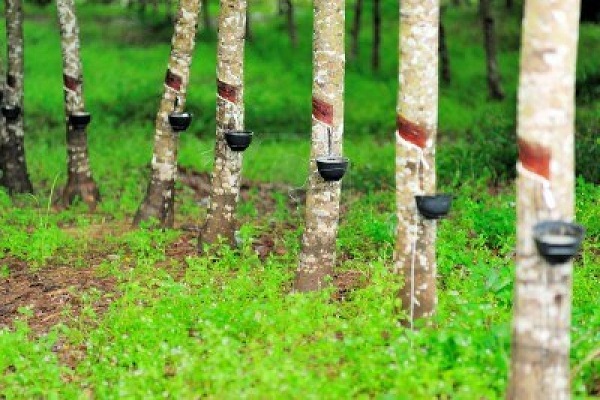After Maharashtra, suicide horror grips rubber belts of Kerala: 2 farmers end life as rubber prices plummet
The rubber belts of Kerala, that account for 92 % of natural rubber production in India, are stricken by panic in the wake of steep fall in rubber prices. The rubber price that ruled around Rs260 a kg until a couple of years back has plummeted below Rs130 now, rendering rubber cultivation unremunerative to farmers.
Kerala’s rubber sector is dominated by small and marginal farmers who own less than one hectare of land. The steep fall in rubber prices has landed small farmers in deep financial trouble and is driving them to suicide. The first reported case of suicide was that of Krishnankutty Nair, a farmer from Peravur in Kannur, Kerala, who took the extreme step driven by mounting debts caused by fall in rubber prices. His body was found hanging from a rubber tree at a plantation at Moonnilavu in Pala, which also happens to be the constituency of Kerala Finance Minister K M Mani.

A suicide note written on a book found from the premises said he was forced to end his life as he was unable to pay back loans taken from banks and private money lenders for rubber farming because of the fall in prices. The note said he chose the Finance Minister’s constituency to end his life as he thought it would highlight the peril being faced by rubber growers. It said several rubber farmers would be compelled to commit suicide if the price of rubber fails to reach the 150 mark.
A second suicide within two months of the first case was reported from Thodupuzha where a tapper took his life when his employer told him not to come for tapping anymore. The victim Gangadharan had been tapping rubber for the past four years in the same estate and the owner decided to stop tapping as it was unviable at the current prices.

Rubber price has a direct bearing on the lifestyle of farmers in Kerala. When prices were high, planters splurged a big chunk of their earnings on liquor, and bars did brisk business. They built palatial houses, bought super luxury cars, made family trips to exotic locations and enrolled their children for professional courses at prestigious institutions. Now with prices at record low, most of them are caught in a debt trap. Car sales in the region have nearly halved. Swanky cars are up for distress sale. Sales at textile and jewellery shops down to pan shops have come down.
With no light seen at the end of the proverbial tunnel, farmers are cutting down rubber trees and migrating to other crops like banana, tapioca etc. Those who still hold on to rubber prefer to leave the trees untapped as the wages of tappers and other input costs are higher than the price realised.
Many reasons are cited for the steep fall in rubber price. Decrease in consumption, especially in China, as a result of economic slowdown and import of rubber into India in excess of the domestic availability of the commodity when international prices rule lower than the domestic price are some of them.
According to international experts like Dr Hidde P Smit, the price of rubber is unlikely to look up till 2020 when global economies are expected to come out of recession, triggering demand for rubber. With no effective Government intervention to arrest the price fall, the spectre of suicide continues to stalk the rubber belts of Kerala.

OMG-inducing, share-compelling, like-attracting, clutter-breaking, thought-provoking, myth-busting content from the country’s leading content curators. read on...
